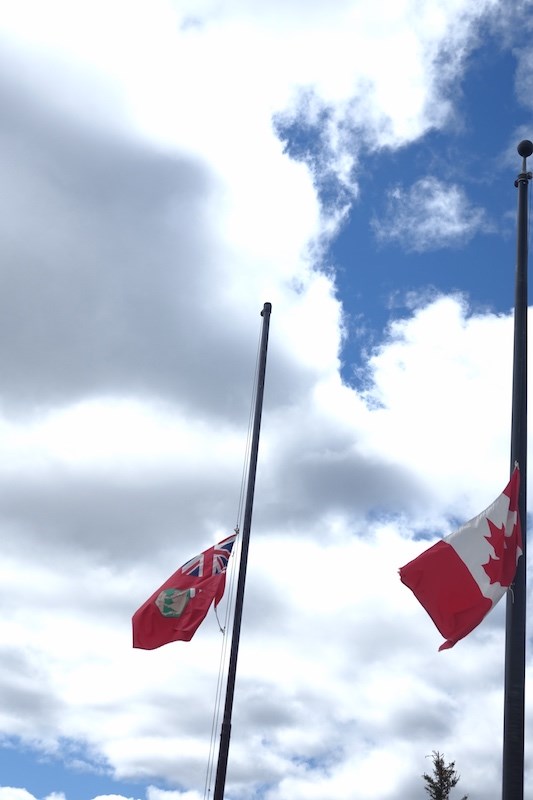Normally the end of June in Thompson is a whirlwind of celebrations, starting either with Nickel Days or National Indigenous Peoples Day, whichever comes first or sometimes on the same weekend, followed up by graduation ceremonies at each of the city’s eight schools, all capped off by Canada Day celebrations. This year, some of those celebrations are virtual or, in the case of Nickel Days, did not take place at all, again, and there are questions about what sort of commemoration is appropriate for Canada Day, given recent revelations of unmarked graves at former residential school sites, most notoriously in British Columbia and Saskatchewan.
To some, Canada Day is apparently sacred, a day reserved for being thankful for Canada’s many successes, freedoms and accomplishments.
To others, having a big to-do about the country that forcibly removed Indigenous children from their homes and sent them away to schools that seemed to many of the students who attended them more like prisons or work camps and, for at least a few thousand, were death sentences, whether from disease, malnutrition or other causes, in the wake of these revelations, shows how important dealing with our racist, colonial past and present really is.
Are countries judged by their worst past actions, which in Canada’s case include other racist policies against people of Chinese, Indian and Japanese descent, to name a few? Or are they judged by their best actions and ideals, even if they fail to lived up to the latter many times? For individuals who have committed crimes, a category in which the number of Indigenous people far outweighs their proportion of the country’s population as a whole, it seems to be the latter.
True, Canada did have a Truth and Reconciliation Commission that collected the stories of residential school survivors and committed them to the permanent record and made dozens of recommendations on how to deal with this hateful and hurtful legacy. There was also an official apology from the federal government. But doing something horrible and then apologizing for it doesn’t leave you with a clean slate. Acknowledging the wrong is only the first step of a process, not the end of it.
Canada’s commitment to reconciliation and the willingness of its citizens to live with the consequences of their country’s past actions require more than lip service. Keep in mind that the recently confirmed unmarked graves were not identified by the federal government or by the churches that ran many of the residential schools on their behalf. They were found by First Nations, the very victims of the racist and assimilationist policy that sought to “kill the Indian in the child” by removing them from the care of their families and from their cultural traditions. It seems pretty heartless to expect the victims of a crime to literally dig up the evidence of what happened to them before people really start grappling with the consequences of their government’s former policies.
To some, what happened in residential schools was “the past,” something that people should get over. Does the same go for the Holocaust? For countries whose citizens were brutalized by the former Soviet Union? For victims of death squads in Central America? For ethnic groups currently being victimized by their countries’ governments? For the Middle East? For 9/11? If it’s part of the past, why are Indigenous people struggling with so many substance abuse, homelessness and incarceration problems today?
Canada is a free country. Individual citizens are free to observe the holidays they wish, how they wish, as are municipal, provincial and federal governments. But the message that doing so sends at this point in the country’s history, when combined with lower per-student funding at First Nations schools as well as some First Nations’ lack of clean water, or all-weather roads to connect them to the rest of the country, among many other issues, could be that what Indigenous people want, what they feel, what they need to move forward and heal, aren’t as important as what other Canadians want. In that respect, as much as things have changed in the past 150 years, maybe they haven’t changed all that much.




